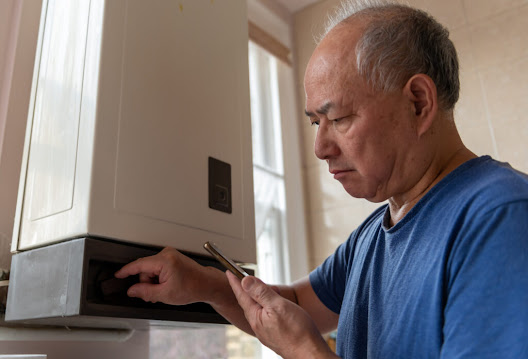Supporting Seniors: Government's Boiler Replacement Scheme for Over 60s
As societies age, ensuring the well-being of senior citizens becomes increasingly important. One vital aspect of their comfort and safety is access to adequate heating systems, especially during colder months. Recognizing this need, governments around the world have initiated various schemes to support seniors in upgrading essential household utilities. One such commendable effort is the "Boiler Replacement Scheme for Over 60s" introduced by the government. Explore the significance of this scheme, its key features, and the benefits it brings to seniors.
Addressing Heating Concerns:Older people often face difficulties in maintaining their homes due to aging infrastructure, including outdated heating systems. The boiler replacement scheme directly addresses this concern by providing financial assistance to seniors for upgrading their boilers. This ensures that they have access to efficient heating, contributing to their overall comfort and well-being.
Energy Efficiency:
Modern boilers are not only more reliable but also significantly more energy-efficient compared to older models. By encouraging seniors to replace their outdated boilers, the scheme promotes sustainability and helps reduce energy consumption and carbon emissions. This aligns with broader environmental goals while also reducing utility bills for seniors in the long run.
Safety Enhancement:
Older boilers are more prone to breakdowns and pose safety risks such as gas leaks and carbon monoxide poisoning. The replacement scheme prioritizes safety by supporting the installation of newer, safer models equipped with advanced safety features. This reduces the likelihood of accidents, providing seniors with peace of mind and a safer living environment.
Financial Assistance:
One of the most significant benefits of the scheme is the financial support it offers to eligible seniors. Many older adults may struggle with limited incomes or fixed pensions, making it challenging to afford costly boiler replacements. By subsidizing the cost or providing grants, the government ensures that seniors can access essential upgrades without facing financial burdens.
Accessibility and Eligibility:
The scheme is designed to be accessible to seniors from diverse socioeconomic backgrounds. Eligibility criteria typically focus on age (over 60), income levels, and the condition of the existing boiler. This inclusivity ensures that those who need assistance the most can benefit from the scheme, irrespective of their financial status.
Partnerships and Implementation:
Effective implementation of the boiler replacement scheme relies on collaboration between government agencies, local authorities, and industry partners. Outreach programs and awareness campaigns play a crucial role in informing seniors about the scheme and guiding them through the application process. Additionally, partnerships with energy companies and heating engineers help streamline the installation process and ensure quality service delivery.
Conclusion:
The Boiler Replacement Scheme for Over 60s is a commendable initiative aimed at supporting seniors and enhancing their quality of life. By addressing heating concerns, promoting energy efficiency, enhancing safety, and providing financial assistance, the scheme offers a holistic solution to the challenges faced by older adults in maintaining their homes. Furthermore, its accessibility and inclusivity ensure that seniors from all walks of life can benefit from this essential support. As governments continue to prioritize the well-being of senior citizens, initiatives like these set a positive precedent for age-friendly policies and pave the way for a more inclusive and supportive society.

Comments
Post a Comment